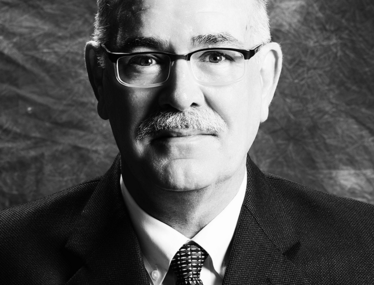An Instinct for Innovation
Sitting Down With... John Talley, Chief Scientific Officer at Euclises Pharmaceuticals, St. Louis, USA.

You were originally destined for a career in a greenhouse…
My father owned a greenhouse and I thought I would be a business major at university and take over. But after one class, I realized that business was dreadfully boring! I decided to take a mixture of chemistry and biology classes instead, which I liked much more. I graduated with a Bachelor of Arts degree in science, but I lacked focus. During my undergraduate research I’d worked with a guy who had obtained his PhD from Paul Gassman; they conspired to recruit me. I ended up working with Paul at the University of Minnesota. That’s when I fell in love with organic chemistry. Over my career, I’ve had the chance to do lots of interesting research. And I’m glad I’m not running a greenhouse.
Why did you choose industry rather than academia?
I thought about getting a post-doc position and finding an academic job, but I had paid my way through college and I’d been living below the poverty line, so I wanted to get a job. I ended up working for a research lab in New York. It was the golden age of research and it was a very appropriate place for great ideas – Thomas Edison’s desk was in the lab. I loved it there, but over time, the company got a new CEO and the environment became much more bureaucratic. Eventually I moved to Monsanto, which had just bought G.D. Searle and was starting to focus on medicinal chemistry and drug discovery.
What was the first commercially successful project you worked on?
Around 1988, we saw a paper published in Nature about a mutation of the HIV virus; the HIV protease was mutated and this rendered the virus particle non-infectious. In the 80s, HIV infection was invariably fatal and this seemed like a potentially good target for treatment. We targeted the pathway that the virus used to reproduce itself and we found some really interesting compounds that were eventually licensed to and commercialized by other companies to become the drugs Agenerase, Lexiva, and Prezista.
How did you get involved in developing COX-2 inhibitors?
In early 1992, while the HIV project was still going on, I was asked to work on a project to identify an inhibitor of the cyclooxygenase-2 (COX-2) enzyme. My main role was to look at structures made by other people and I came up with the idea of making a hybrid structure. By 1993, we had a core structure that had great in vitro and in vivo activity in animal models of inflammation and pain. Ultimately, it led to the development of Celebrex (celecoxib). It was approved by the FDA on the last day of 1998. A lot of people at different facilities in Searle worked on this project – teamwork is one of the most important elements in drug development and discovery.
How do you cope when molecules fail?
When you’re in discovery, you never know if a molecule that you advance and nominate for pre-clinical development and clinical development is going to make it, so you just keep on making new analogues! It’s really satisfying when something works out but many things don’t. I was involved in identifying a drug that unfortunately ended up being pulled from the market because of some severe side effects, which affected a handful of people. It wasn’t the kind of thing that you could ever see during the clinical trial; post-marketing surveillance led to its withdrawal. It wasn’t a bad decision, but the drug actually helped thousands of people in its lifetime.
How has the process of discovering new molecules changed?
Over the years, some companies have tried to increase the productivity of drug discovery with the idea that if you make lots of compounds then you will probably make a lot of drugs. But I’ve always felt that finding drugs is not a statistical activity, rather you end up with even more compounds that go nowhere. Today, you could argue that drug discovery has been industrialized with the advent of screening and computational chemistry. But I think there is real value in having people at the bench, looking at the raw data and using their own insights and experience to identify new drug candidates. When I consider all my discoveries, I was in the lab making the compounds and had real intimate knowledge of the chemistry and the physical properties of the molecules.
What approach to drug discovery does Euclises have?
We try to identify unique chemical structures with some known biological activity and then attempt to fix any shortcomings. Over the years, a lot of people have talked about drug re-purposing, but that’s not what we’re trying to do. We dig things out of the literature that look interesting, but that don’t have the desirable characteristics to be advanced into clinical trials. We’re using our experience to try and do more. I’m actually part of the management of Euclises, but in an ideal world I’d be in the lab with a cellphone headset in case somebody wanted to call me!

Making great scientific magazines isn’t just about delivering knowledge and high quality content; it’s also about packaging these in the right words to ensure that someone is truly inspired by a topic. My passion is ensuring that our authors’ expertise is presented as a seamless and enjoyable reading experience, whether in print, in digital or on social media. I’ve spent fourteen years writing and editing features for scientific and manufacturing publications, and in making this content engaging and accessible without sacrificing its scientific integrity. There is nothing better than a magazine with great content that feels great to read.



















